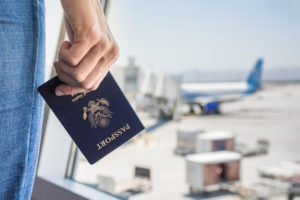This Global Healthcare Checklist Is All You Need to Move Abroad
We have put together a global healthcare checklist for future expatriates and global nomads who plan to move abroad or have already made a move. These are just general commons sense tips that may seem obvious but are often missed by international citizens. We hope that you find them useful.

- Double-check with your doctor and make sure you are up-to-date on routine vaccinations like Tetanus and Diphtheria.
- Check what additional vaccinations you might need for the country you are going to. Some vaccinations require shots over a period of months, so if you have not completed the course in advance, you will need to organize to do so after your arrival.
- If you are going to be a longer-term resident, consider getting vaccinations, which may only be described in tourist advice as ‘optional’ or ‘for certain areas.’
- Get a copy of your medical history. It is a good idea to scan and store it electronically and have a copy on paper.
- Obtain a high-quality international health insurance policy to protect you and your family against unforeseen medical expenses should you become ill or be injured while living abroad. Local healthcare may not be available or sufficient, so an international health plan via Expat Financial can be a lifesaver. They have many different plans to fit almost any budget and can even discuss your requirements and help you find the best global health plan for your adventure abroad.
- Visit your dentist to check your oral health.
- If you wear glasses, get a spare pair. If you have high eye pressure, go to your eye doctors’ and have an eye exam.
- If you wear contact lenses, get an extra supply.
- If you are taking regular medication, get an extra supply, and take a copy of your current prescription. You may need this at customs or airport security.
- Finding out the generic name for the medicine you are taking. It may be marketed under a different brand in another country.
- If possible, take the contents of your home medicine cabinet with you. If not, take medicines you regularly use for common complaints.

- Make sure you have appropriate health cover. In many cases, you will not necessarily have the right to healthcare in the country you are moving to.
- Ask your medical insurance provider if your policy applies overseas for emergencies. If it doesn’t, you want to add extra coverage.
- Some countries, such as those who are members of the Schengen Area, the UAE, and the US for some visa types, require proof of health insurance before a visa is issued.
- If you move from one EU country to another, get the EHIC – European Health Insurance Card. This will cover emergency treatment for the period until you can get cover in the local health system.
- It’s not just about physical health. Make sure you and your families are prepared psychologically.
- Talk about worries and concerns. If necessary, agree on what will happen if it doesn’t go well and how you will measure success or failure.
- Make sure you spend some time with friends and family before you go.
- Start learning the language, watch films and documentaries about the country. Learn about its culture and history.
- Make sure your passport is valid. Don’t bring an expired passport.
- Bring copies of your passport. If your passport gets stolen or lost, you want to be sure that you can still get back into the country or prove your citizenship.
- Leave a copy of your passport. For extra back up, leave a copy of your passport at home or with someone you trust. Consider making an electronic copy you can store in your email account as well.
- Register with your embassy. If there’s a problem in the country, this will make it easier for your government to contact you and get you to safety.
- Look up the monetary conversions before you go. Make sure you do your math before you travel to get a sense of where the conversion rate is.
- Make sure your credit card will work in the country you’re visiting.

- Always have local cash. Not every place takes credit cards.
- Call your bank or credit card provider to make sure that they don’t think fraud is occurring. So they won’t turn off your card as a security measure.
- Bring a charger adapter. Countries have different size plugs and voltage. Always check the voltage of your electronics.
- Activate your phone’s global capabilities. There’s usually a charge when doing this, but it is much less than the roaming charges you’ll get if you don’t.
- Each airline has its own set of guidelines regarding how many bags can be checked or carried on for free. Make sure to look up what your airline’s rules are to avoid any incremental fees.
- Bring small snacks until you find that perfect restaurant.
- Securing housing should be your top priority. Start searching for housing before you leave.
We hope that these tips on the global healthcare checklist are useful to you. Please let us know what we have missed as we can then add it. Living abroad is an adventure filled with many opportunities – you only live once, so make sure you live abroad at least once if you can.



